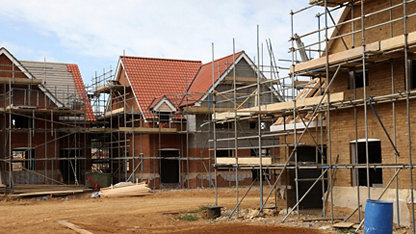The UK government is currently seeking to balance the pressure on their own financial bottom line while aiming to ease uncertainty on the public’s finances. To do this they have introduced a series of measures regarding both business and personal hardship. One such announcement was around residential lettings, giving tenants security from eviction and the opportunity, where needed and agreed, to defer rent payments. Tenants looking to defer rent should take that decision with the same motive government has taken in its fiscal COVID-19 measures: financial benefit in the short and long term.
Tenants who negotiate a rent freeze must do so in the knowledge that they have to pay it back later. They must therefore consider their finances and acknowledge repayment will likely take the form of higher rents afterwards. Will they be able to afford higher rent later, and to what extent would partial payment of rent in the meantime be better?
RICS would urge our members to ensure that the tenant has looked at all their financial options before they agree to a rent deferral. The various devolved parliaments and assemblies of the UK are providing aid and financial hardship packages to allow people to continue to be able to pay their rent and costs of living. Agents and landlords should refer tenants to organisations such as citizens advice to ensure they have been informed of all help to pay options before they burden themselves with a rental debt. Rent deferral should be considered a last resort because it does not absolve the tenant from payment at a later date.
Repayment should be part of the discussion between the tenant and landlord or agent when deciding to defer. There is currently no government guidance on how quickly rent must be repaid, so amounts and timelines for repayment is completely at the discretion of those parties. Landlords of transient tenants such as students are likely to want deferred rent paid back quicker than those with long term tenants, because they will want it paid before a tenant leaves the property. Without proper discourse between tenants and landlords, a rent freeze has the potential to become a burden for the tenant.

Options for tenants will be under intense scrutiny when the housing market begins to return to normal
The government has extended the eviction notice period from two to three months, but if a tenant has frozen their rent it means they will have to pay it back within the notice period or possibly lose the deposit. This is not a beneficial option for either party as it means a higher burden of repayment for tenants or possibly the loss of rent income for the landlord as a deposit only covers six weeks of rent and that’s assuming there is no damage to the property.
The suspension of notice could be re-examined but as it stands, it means that landlords can serve an eviction notice to tenants after the three-month period which currently expires at the end of June. For s21 evictions, tenants are now given three months’ notice (after the changes to notice periods for COVID-19 were introduced on a temporary basis). If you have frozen your rent it means you will have to pay it back within those three months or possibly lose your deposit. In addition, it is worth noting that s21 evictions will return to two months’ notice after September. There is no change to the notice period a tenant needs to give, but they would need to pay back their arrears before they leave.
S8 evictions will take longer than usual to remove the tenant due to the court process, with all court actions currently frozen and with the extension of eviction notice period from two week to three months, though the notice period is shorter if you don’t go to court but this will still see tenants needing to pay off their rent arrears before leaving the property if they chose not to go to court.
“Without proper discourse between tenants and landlords, a rent freeze has the potential to become a burden for the tenant.”
There is a possibility that the government will rush through their ill-thought out renters’ bill to help prevent s21 evictions and make all post-COVID evictions go through the s8 court process, but this could see a bigger impact on tenants especially those who froze their rents. Reference checks will become a lot more vital and tenants who froze rent could be seen as riskier options compared to those who didn’t. For some time now RICS has urged government to undertake a thorough review and modernisation of the court system before any changes are made to the evictions processes. This would give tenants security within tenure but will also allow landlords to have the safety of knowing they can remove troublesome tenants if needed and allow them to have more discretion with good tenants.
We have also urged government to adopt the regulation of property agent (RoPA) working group recommendations as a top priority for PRS policy. Implementing the working group recommendations would require landlords and agents to operate to a minimum standard, which would provide tenants with increased security and peace of mind.
Four things have become clear as a result of this crisis:
- debt management policies must be introduced
- landlords and tenants alike benefit from good relationships with one another
- the government should have looked at reforming the court system, and
- the lack of standards and regulation within the private rental sector is starting to show.
Hopefully when the market starts getting back to normal the rent freeze thaw doesn’t reveal freezer burn.
About the author

Tamara Hooper
Policy Manager, RICS
Tamara is our Policy Manager. She is based in London and works within the UK External Affairs team.














